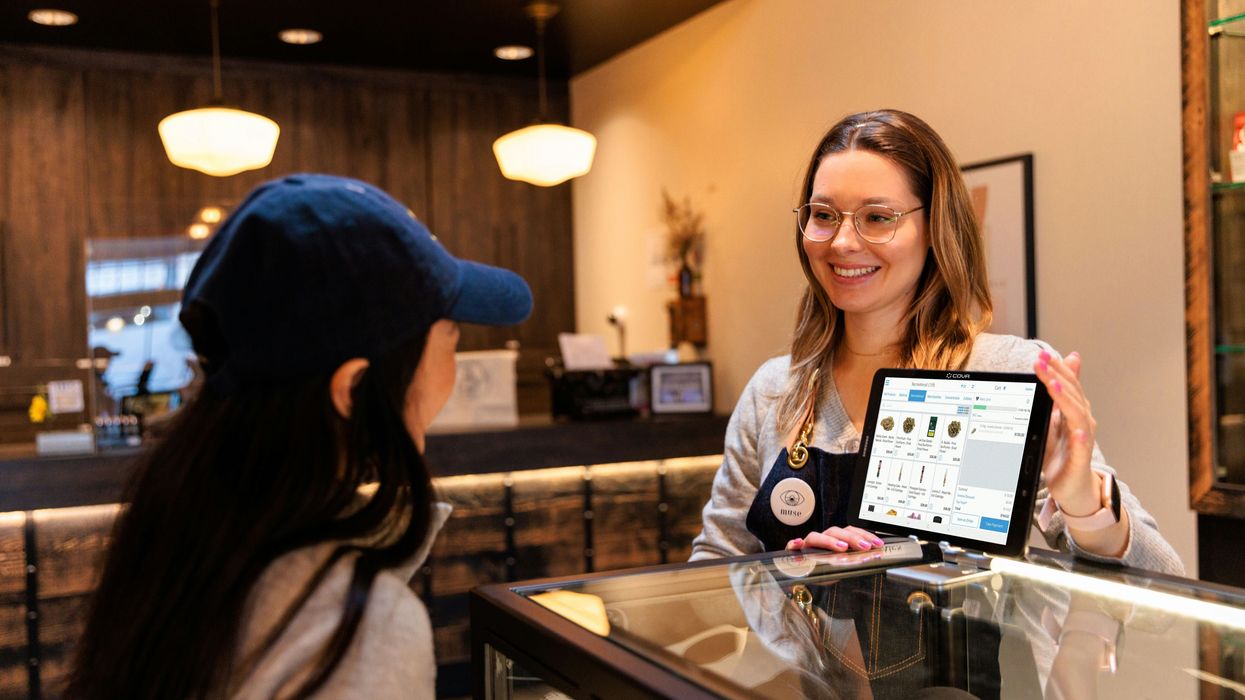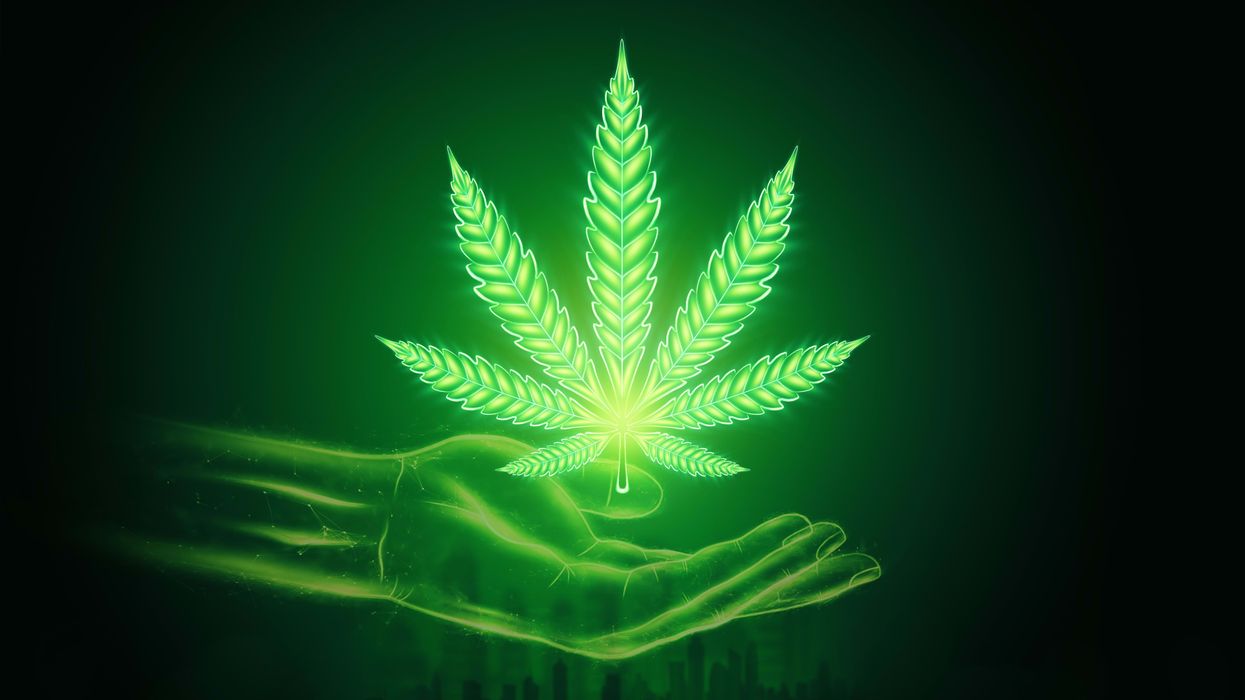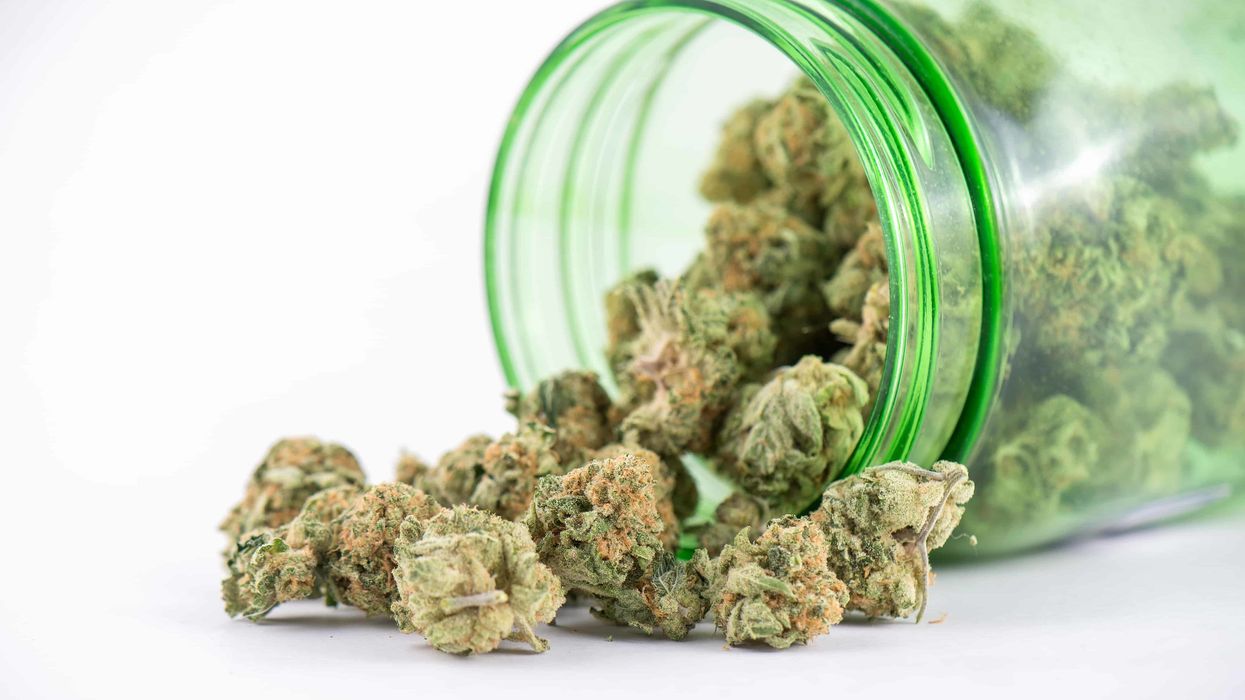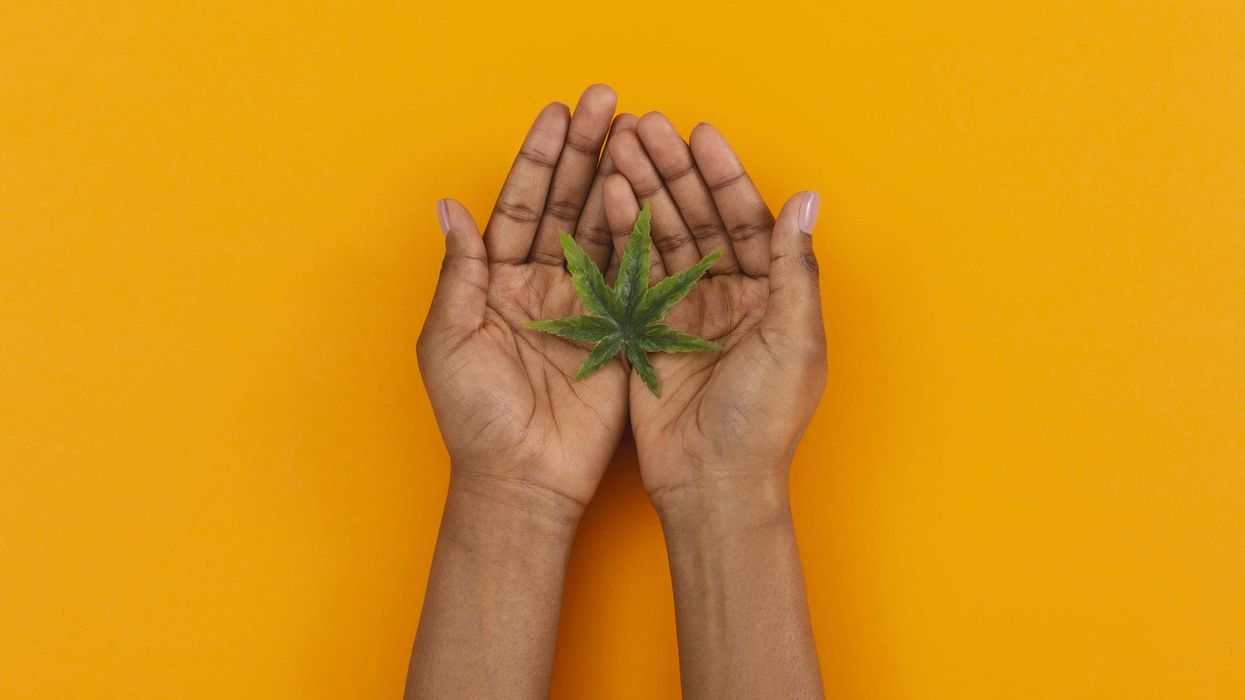What Is a Budtender? Role Definition & Overview
A budtender is a specialized cannabis retail professional who educates customers about marijuana products, provides personalized recommendations, and processes compliant sales transactions in licensed dispensaries. Think of a budtender as a cannabis sommelier—combining deep product knowledge with exceptional customer service in the rapidly growing legal cannabis industry. It's worth noting that, there is a category of specialization called a Ganjier that is more akin to cannabis sommelier than a traditional budtender.
The legal cannabis market is projected to reach $73.6 billion by 2027, creating thousands of budtender jobs across 38+ states and territories with legalized cannabis programs.
Who Should Read This Budtender Career Guide?
This comprehensive guide is designed for:
- Career changers exploring opportunities in the cannabis industry
- Recent graduates seeking entry-level positions with growth potential
- Retail workers transitioning to specialized cannabis sales
- Cannabis enthusiasts interested in professional dispensary careers
- Anyone researching how to become a budtender with no experience
What You'll Learn About Becoming a Budtender
- Complete budtender job description and daily responsibilities
- Essential cannabis knowledge: strains, products, and consumption methods
- Step-by-step process to get budtender certification and licensing
- Budtender salary expectations and career advancement opportunities
- Skills required to succeed in cannabis retail positions
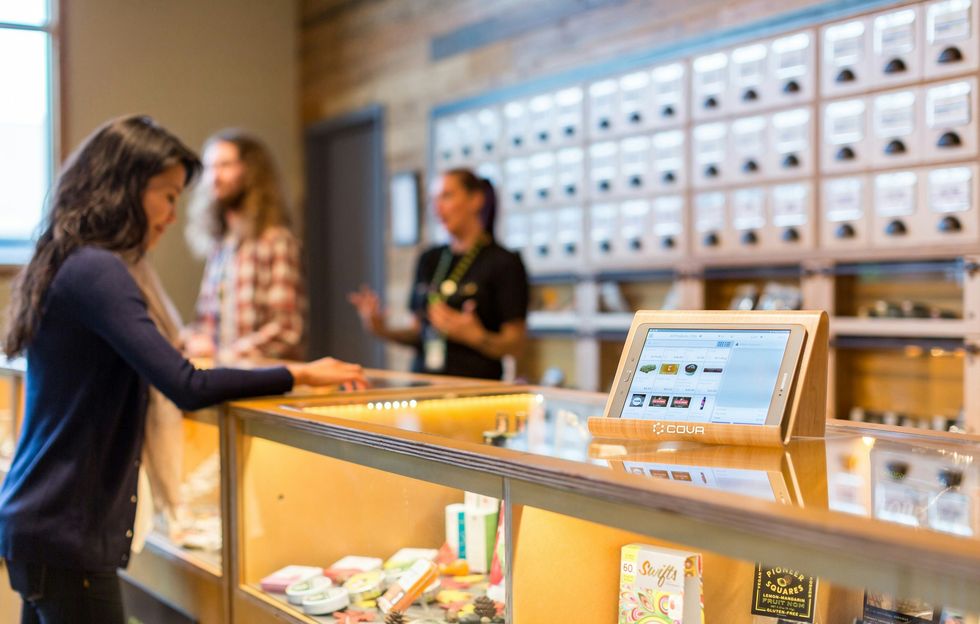
Budtender Job Description: Core Responsibilities & Daily Tasks
What Does a Budtender Do? Primary Duties
Customer Education & Product Knowledge
Budtenders serve as trusted educators who explain cannabis products to customers with varying experience levels. Core educational responsibilities include:
- Teaching the differences between indica, sativa, and hybrid cannabis strains
- Explaining consumption methods: flower, edibles, concentrates, topicals, and tinctures
- Clarifying THC and CBD ratios, terpene profiles, and dosage guidelines
- Guiding first-time users on safe cannabis consumption practices
- Answering questions about cannabis effects, onset times, and duration
Personalized Product Recommendations
Successful budtenders match customers with appropriate cannabis products based on individual needs:
- Conducting consultative conversations to understand customer goals
- Recommending strains for specific outcomes (relaxation, energy, pain relief, sleep)
- Suggesting appropriate dosages, especially for cannabis edibles (typically 2.5-5mg THC for beginners)
- Demonstrating product options and explaining quality differences
- Building customer relationships that encourage repeat visits
Legal Compliance & Regulatory Duties
Cannabis retail requires strict adherence to state and local marijuana laws:
- Verifying customer identification and age requirements (21+ for recreational cannabis)
- Tracking all transactions through seed-to-sale compliance systems
- Maintaining accurate inventory records for state reporting
- Understanding possession limits and packaging regulations
- Staying current on evolving cannabis legislation
Budtenders directly impact dispensary success through customer satisfaction, compliance management, and brand reputation.
Essential Skills to Become a Budtender
Cannabis Product Expertise Required
Understanding Cannabis Strains
Professional budtenders must know how different cannabis varieties affect users:
- Indica strains: Typically produce relaxing, sedative effects ideal for evening use and sleep
- Sativa strains: Generally provide energizing, uplifting effects suited for daytime activities
- Hybrid strains: Combine indica and sativa characteristics for balanced effects
Beyond basic categories, budtenders learn specific strain profiles, potency levels, and therapeutic applications for medical cannabis patients.
Consumption Method Knowledge
Each cannabis consumption method offers distinct experiences:
- Cannabis flower: Immediate effects through smoking or vaping (5-15 minutes onset)
- Edibles: Delayed but longer-lasting effects (30-120 minutes onset, 4-8 hours duration)
- Concentrates: High-potency extracts for experienced consumers
- Topicals: Localized relief without psychoactive effects
- Tinctures: Precise dosing with sublingual absorption
Technical Cannabis Knowledge
Advanced budtenders understand the science behind cannabis:
- THC (tetrahydrocannabinol) and CBD (cannabidiol) percentages and effects
- Terpene profiles that influence aroma, flavor, and therapeutic benefits
- Proper cannabis storage to maintain product quality
- How cannabis interacts with the human endocannabinoid system
Customer Service Skills for Budtenders
Active Listening & Consultation
Unlike traditional retail sales, budtending requires therapeutic sensitivity:
- Listening carefully to understand customer needs without judgment
- Asking open-ended questions about desired effects and previous experience
- Providing education rather than pushing high-margin products
- Showing genuine passion and enthusiasm for helping customers
Medical Sensitivity & Safety Awareness
Many customers visit dispensaries for medical cannabis relief:
- Understanding common conditions that benefit from cannabis (chronic pain, anxiety, insomnia)
- Recognizing when customers need dosage adjustments to prevent overconsumption
- Respecting patient privacy and medical information
- Knowing when to recommend customers consult healthcare providers
Technical & Professional Competencies
Point-of-Sale Systems
Budtenders must efficiently operate cannabis-specific retail technology:
- Processing transactions through specialized dispensary software
- Calculating cannabis taxes and applying discounts
- Maintaining real-time inventory accuracy
- Generating compliance reports for state authorities
Regulatory Compliance Knowledge
Cannabis laws vary significantly by state and locality:
- Understanding local possession limits for recreational and medical users
- Knowing product testing and labeling requirements
- Following advertising and marketing restrictions
- Maintaining required permits and certifications with current issuance and expiration dates
How to Become a Budtender: Step-by-Step Career Path
Step 1: Research Your State's Budtender Requirements
Cannabis laws differ dramatically across jurisdictions. Before pursuing budtender positions:
Verify Legal Requirements
- Confirm minimum age requirements (typically 21+ for recreational dispensaries)
- Research background check procedures and disqualifying offenses
- Identify required licenses (cannabis handler's permit, marijuana worker card)
- Check local versus state-level regulations
Consult Official Resources
- Visit your state cannabis control board website for current information
- Review local municipality ordinances for additional requirements
- Join state cannabis industry associations for regulatory updates
Step 2: Obtain Necessary Budtender Certification & Permits
Most states require cannabis retail workers to complete specific training:
Common Certification Requirements
- Cannabis handler's license or marijuana worker permit
- Responsible vendor training (similar to alcohol server certification)
- Food handler's permit (if dispensary sells edibles)
Advanced Cannabis Education Programs
- Ganjier Certification: Industry-recognized program created by cannabis experts, offering comprehensive training in quality assessment, terroir, flavor profiles, and professional standards
- Cannabis sommelier courses: Provide in-depth strain knowledge and tasting methodology
- State-approved budtender training: Often required before employment in licensed dispensaries
Step 3: Build Foundational Cannabis Knowledge
Develop expertise before applying for budtender jobs:
Self-Directed Learning
- Study cannabis strain types, effects, and therapeutic applications
- Research consumption methods and dosing guidelines
- Learn cannabis cultivation basics and product manufacturing
- Understand the difference between medical and recreational cannabis programs
Hands-On Experience
- Visit multiple dispensaries to observe budtender interactions
- Ask budtenders about their career paths and daily responsibilities
- Examine product variety and packaging requirements
- Note different dispensary atmospheres and customer service approaches
Step 4: Gain Relevant Customer Service Experience
Dispensaries often hire candidates with strong retail backgrounds:
Transferable Skills
- Cash handling and point-of-sale operation
- Customer consultation and relationship building
- Inventory management and loss prevention
- Working with diverse customer populations
Ideal Previous Experience
- Specialty retail (wine shops, cigar stores, specialty foods)
- Healthcare or wellness industry positions
- Hospitality and service-oriented roles
- Any position requiring product knowledge and customer education
Step 5: Apply Strategically to Dispensary Jobs
Target Appropriate Dispensaries
- Medical dispensaries: Focus on therapeutic knowledge and patient care
- Recreational dispensaries: Emphasize customer experience and product variety
- Boutique cannabis shops: Highlight premium product knowledge
- High-volume dispensaries: Demonstrate efficiency and transaction speed
Prepare for Budtender Interviews
- Research the dispensary's product selection and brand identity
- Prepare to discuss your cannabis knowledge and passion
- Demonstrate understanding of compliance requirements
- Show enthusiasm for helping customers find appropriate products
- Ask thoughtful questions about continuing education opportunities

Budtender Salary & Benefits: What to Expect
How Much Do Budtenders Make?
Average Budtender Salary by Experience Level
- Entry-level budtender salary: $15-18 per hour ($31,200-$37,440 annually)
- Experienced budtender salary: $20-25 per hour ($41,600-$52,000 annually)
- National average: Approximately $33,267 per year
Salary variations depend on location, dispensary size, experience level, and additional responsibilities like inventory management or staff training.
Common Budtender Benefits & Perks
Employee Discounts
- Substantial discounts on cannabis products (typically 20-40% off retail)
- Opportunity to try products for better customer recommendations
- Access to new product releases before public availability
Professional Development
- Paid training and cannabis education programs
- Industry conference attendance
- Advanced certification support (Ganjier program, cannabis sommelier training)
- Mentorship from experienced dispensary managers
Additional Compensation
- Sales commissions or bonuses based on performance
- Tips from satisfied customers (in some locations)
- Overtime opportunities during peak business periods
Standard Employee Benefits
- Health insurance (increasingly common as industry matures)
- Paid time off and sick leave
- Employee assistance programs
- Retirement plan options (401k) at larger dispensary chains
Entry-Level vs. Experienced Budtender Positions: Key Differences
Entry-Level Budtender Positions
Typical Requirements
- Basic cannabis knowledge (strain types, consumption methods)
- Customer service experience in any retail environment
- Willingness to learn and complete required training
- Clean background check and required state permits
Primary Responsibilities
- Customer assistance and basic product recommendations
- Point-of-sale transaction processing
- Inventory organization and restocking
- Learning dispensary procedures and compliance protocols
Salary Range: $15-18/hour
Experienced Budtender Positions
Typical Requirements
- 1-2 years dispensary or cannabis industry experience
- Advanced cannabis certifications (Ganjier, cannabis sommelier)
- Proven sales record and customer satisfaction scores
- Deep knowledge of cannabis products and effects
Primary Responsibilities
- Lead customer consultations for complex needs
- Training and mentoring new budtender staff
- Inventory management and vendor relationships
- Contributing to product selection decisions
Salary Range: $20-25/hour
Budtenders who complete relevant training programs and demonstrate expertise advance more quickly into experienced roles with higher compensation.
Common Budtender Challenges & Solutions
Challenge 1: Managing Overwhelming Product Variety
The Problem: New budtenders face hundreds of cannabis products with different strains, potencies, and effects.
The Solution:
- Focus on learning one product category weekly
- Start with cannabis flower since it forms the foundation of cannabis knowledge
- Master 5-10 popular strains in each category (indica, sativa, hybrid)
- Gradually expand to concentrates, edibles, and specialty products
- Use product knowledge resources and manufacturer information
- Ask experienced budtenders for their product recommendations
Challenge 2: Serving Diverse Customer Needs
The Problem: Customers range from first-time users to experienced consumers, with medical patients requiring therapeutic guidance.
The Solution:
- Develop a consultation framework that differentiates medical and recreational customers
- Ask open-ended questions about desired effects and previous cannabis experience
- Listen for consumption preferences (smoking versus edibles)
- Maintain sensitivity around medical conditions and privacy
- Provide tailored support based on individual circumstances
- Know when to recommend lower doses for beginners
Challenge 3: Staying Current with Changing Cannabis Regulations
The Problem: Cannabis laws evolve frequently at state and local levels, requiring constant compliance awareness.
The Solution:
- Subscribe to state cannabis authority email updates
- Join professional cannabis industry associations
- Attend regular dispensary team meetings for policy reviews
- Follow respected cannabis industry publications
- Maintain continuing education as regulations change
- Keep required permits current by tracking issuance and expiration dates
Budtender Career Advancement Opportunities
Growth Path Within Cannabis Dispensaries
Successful budtenders can advance into leadership and specialized roles:
Lead Budtender / Senior Budtender
- Mentor and train new cannabis retail staff
- Handle complex customer consultations
- Assist with product selection and vendor relationships
- Earn $22-28 per hour
Dispensary Supervisor / Assistant Manager
- Oversee daily operations and staff scheduling
- Manage inventory and ordering
- Handle customer service issues and complaints
- Earn $45,000-60,000 annually
Dispensary Manager
- Full operational responsibility for location
- Staff hiring, training, and performance management
- Financial performance and compliance oversight
- Earn $55,000-75,000 annually
Alternative Cannabis Industry Career Paths
Budtender experience opens doors throughout the cannabis sector:
- Cannabis cultivation: Growing and harvesting cannabis plants
- Manufacturing and extraction: Creating concentrates, edibles, and other products
- Compliance and regulatory affairs: Ensuring industry adherence to cannabis laws
- Cannabis education and consulting: Training industry professionals
- Product sales and brand representation: Working directly with cannabis brands
Frequently Asked Questions About Becoming a Budtender
Q: How long does it take to become a budtender?
A: Most people can become job-ready in 2-4 weeks. This includes researching state requirements (1-3 days), obtaining necessary permits (1-2 weeks processing time), completing required training (2-5 days), and gaining basic cannabis knowledge. However, becoming an expert budtender requires 6-12 months of hands-on dispensary experience.
Q: Do you need a budtender license to work in a dispensary?
A: Requirements vary by state. Most states require a cannabis handler's permit, marijuana worker card, or similar license obtained through your state cannabis authority. Some states also require background checks and responsible vendor training. Always check your specific state's current regulations.
Q: Can you become a budtender with no experience?
A: Yes, many entry-level budtender positions welcome candidates without cannabis industry experience. However, customer service experience in retail, hospitality, or sales significantly improves your hiring prospects. Completing a cannabis education program like Ganjier certification demonstrates commitment and knowledge.
Q: What disqualifies you from becoming a budtender?
A: Common disqualifications include being under 21 years old, certain criminal convictions (especially drug trafficking or violent offenses), and failing to obtain required state permits. Requirements vary significantly by state, so check your local cannabis control board regulations.
Q: Is being a budtender a good career?
A: Budtending offers entry into the growing cannabis industry with advancement opportunities. It's ideal for people passionate about cannabis, customer service, and retail. The profession provides competitive pay ($33,000-50,000+ annually depending on experience), employee discounts, and flexible scheduling. However, it requires standing for long periods, weekend/evening availability, and constant learning as the industry evolves.
Q: What's the difference between medical and recreational budtenders?
A: Medical budtenders work with patients seeking therapeutic cannabis relief and require deeper knowledge of medical conditions, symptom management, and dosing precision. Recreational budtenders focus more on customer experience, product variety, and social consumption. Some dispensaries serve both markets, requiring budtenders to adapt their approach based on customer needs.
Getting Started: Your Next Steps to Become a Budtender
The budtender career path offers meaningful opportunities within the expanding legal cannabis industry, combining specialized product expertise with customer service in a profession that barely existed 20 years ago. As dispensaries continue opening across newly legalized states, knowledgeable budtenders become increasingly valuable for creating positive customer experiences and ensuring regulatory compliance.
Immediate Action Steps
This Week:
- Visit 2-3 local dispensaries to observe budtender interactions and different store atmospheres
- Research your state's specific requirements for cannabis retail employment
- Begin studying basic cannabis knowledge through reputable industry resources
This Month:
- Apply for required permits or licenses in your state
- Complete any mandatory budtender training programs
- Build your resume highlighting customer service and retail experience
- Connect with local cannabis industry professionals on LinkedIn
Next 3 Months:
- Apply to 5-10 dispensaries that align with your interests
- Consider advanced cannabis education like the Ganjier program
- Attend cannabis industry events and networking opportunities
- Continue developing your cannabis product knowledge
Recommended Resources
Official State Information:
- Your state cannabis control board website for current regulations
- Local municipality guidelines for additional requirements
Cannabis Education:
- Ganjier Certification Program (industry-recognized professional training)
- State-approved budtender training courses
- Cannabis industry publications and newsletters
Professional Development:
- State cannabis industry associations
- Dispensary job boards and cannabis-specific employment sites
- Industry conferences and trade shows
Related Cannabis Career Opportunities
If you're interested in the cannabis industry beyond budtending, explore these related roles:
- Cannabis Cultivation Technician: Growing and maintaining cannabis plants in commercial facilities
- Extraction Technician: Creating concentrates, oils, and cannabis extracts
- Dispensary Manager: Overseeing dispensary operations, staff, and compliance
- Cannabis Compliance Officer: Ensuring regulatory adherence across cannabis businesses
- Cannabis Educator: Training industry professionals or educating consumers
- Product Sales Representative: Representing cannabis brands to dispensaries
The growing legal cannabis industry continues creating diverse career opportunities for passionate professionals committed to education, safety, and exceptional customer service.
About This Budtender Career Guide
This comprehensive guide was created to help aspiring cannabis retail professionals understand the complete path to becoming a successful budtender. Whether you're transitioning from traditional retail, exploring your first career, or passionate about cannabis education, this guide provides actionable steps tailored to your situation.
The cannabis industry represents one of the fastest-growing job markets in the United States, with budtender positions serving as an accessible entry point for thousands of career seekers each year. By combining product expertise, customer service excellence, and regulatory compliance, budtenders play a crucial role in the success and safety of legal cannabis markets.
As the industry matures and more states legalize cannabis, professional standards continue rising. Advanced education programs like Ganjier certification—developed by industry experts and often compared to wine sommelier credentials—demonstrate the sophistication and professionalism that modern budtenders bring to their roles.
We encourage you to use this guide as a starting point for your cannabis retail career journey. The most respected professionals in the industry emphasize continuing education, staying current with research, and maintaining genuine passion for helping customers find appropriate cannabis products for their individual needs.
